
Manyfold (pronounced “manifold”, and previously known as VanDAM) is a digital asset manager, specifically designed for 3D print files. Create a library pointing at your files on disk, and it will scan for models and parts. It assumes that any folders containing STL or OBJ files are models, and the files within them are parts. You can then view the files easily through your browser! In this step by step guide I will show you how to install Manyfold on your Synology NAS using Docker & Portainer.
STEP 1
Please Support My work by Making a Donation.
STEP 2
Install Portainer using my step by step guide. If you already have Portainer installed on your Synology NAS, skip this STEP. Attention: Make sure you have installed the latest Portainer version.
STEP 3
Go to File Station and open the docker folder. Inside the docker folder, create one new folder and name it manyfold. Follow the instructions in the image below.
Note: Be careful to enter only lowercase, not uppercase letters.
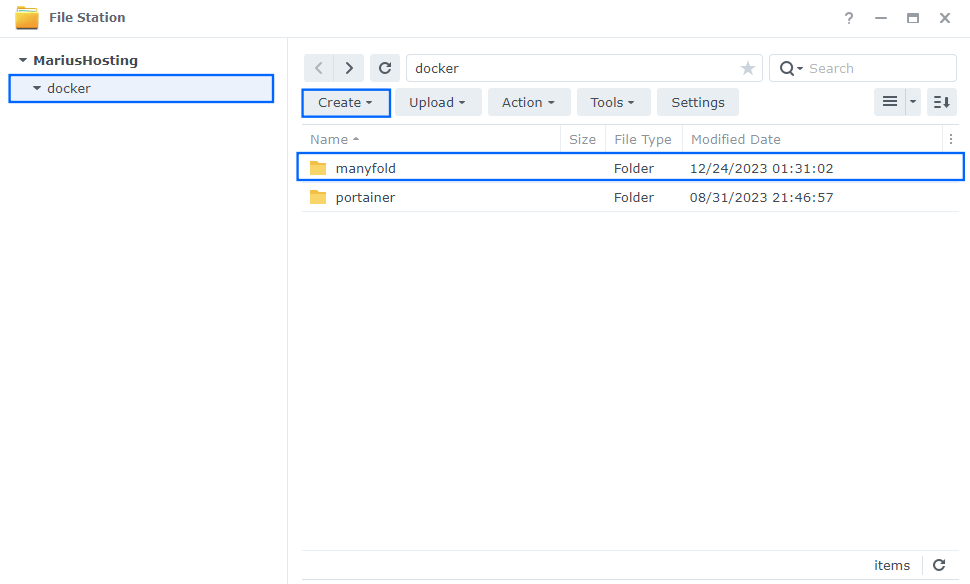
STEP 4
Now create three new folders inside the manyfold folder that you have previously created at STEP 3 and name them db, libraries, redis. Follow the instructions in the image below.
Note: Be careful enter only lowercase, not uppercase letters.
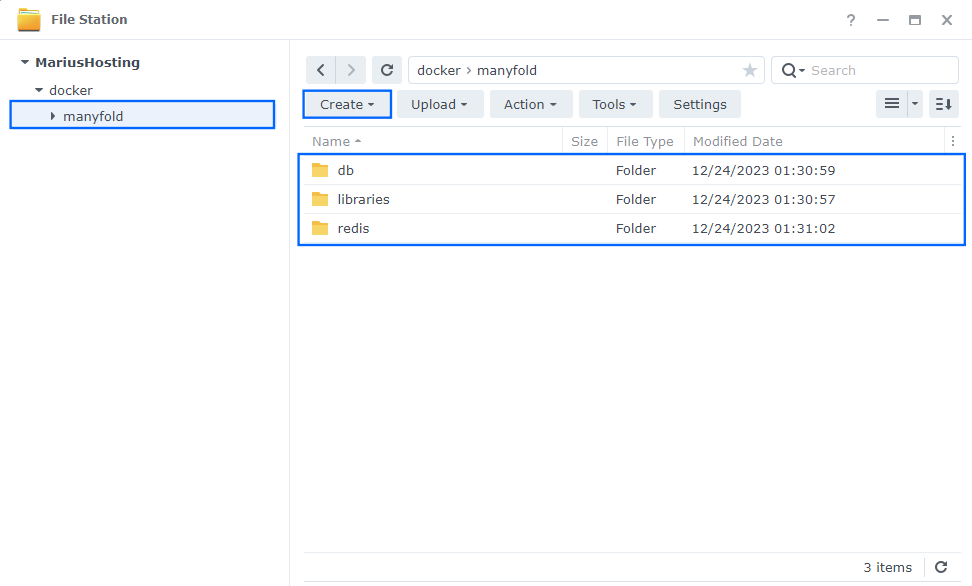
STEP 5
Log into Portainer using your username and password. On the left sidebar in Portainer, click on Stacks then + Add stack. Follow the instructions in the image below.
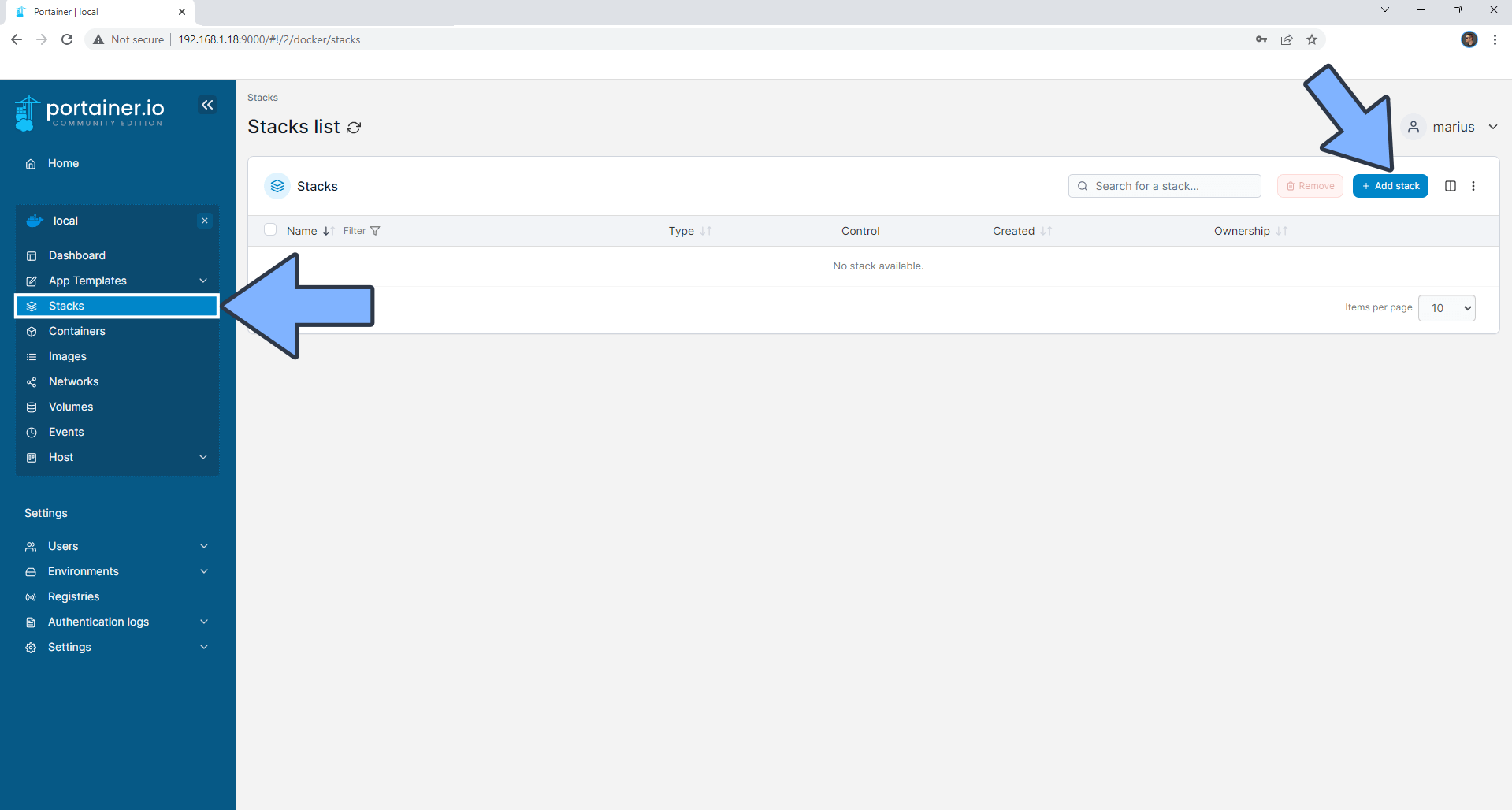
STEP 6
In the Name field type in manyfold. Follow the instructions in the image below.
services:
redis:
image: redis:7
command:
- /bin/sh
- -c
- redis-server --requirepass redispass
container_name: Manyfold-REDIS
hostname: manyfold-redis
mem_limit: 256m
mem_reservation: 50m
cpu_shares: 768
security_opt:
- no-new-privileges:true
read_only: false
user: 1026:100
healthcheck:
test: ["CMD-SHELL", "redis-cli ping || exit 1"]
volumes:
- /volume1/docker/manyfold/redis:/data:rw
environment:
TZ: Europe/Bucharest
restart: on-failure:5
db:
image: postgres:16
container_name: Manyfold-DB
hostname: manyfold-db
mem_limit: 512m
cpu_shares: 768
security_opt:
- no-new-privileges:true
healthcheck:
test: ["CMD", "pg_isready", "-q", "-d", "manyfold", "-U", "manyfolduser"]
timeout: 45s
interval: 10s
retries: 10
volumes:
- /volume1/docker/manyfold/db:/var/lib/postgresql/data:rw
environment:
POSTGRES_DB: manyfold
POSTGRES_USER: manyfolduser
POSTGRES_PASSWORD: manyfoldpass
restart: on-failure:5
manyfold:
image: ghcr.io/manyfold3d/manyfold:latest
container_name: Manyfold
hostname: manyfold
mem_limit: 8g
cpu_shares: 2048
security_opt:
- no-new-privileges:true
ports:
- 7214:3214
volumes:
- /volume1/docker/manyfold/libraries:/libraries:rw
environment:
REDIS_URL: redis://:redispass@manyfold-redis:6379/1
DATABASE_URL: postgresql://manyfolduser:manyfoldpass@manyfold-db/manyfold?pool=5
SECRET_KEY_BASE: MariushostingMariushostingMari13
PUID: 1026
PGID: 100
# RAILS_RELATIVE_URL_ROOT: /manyfold Sets the root of the app to /manyfold useful for reverse proxies with nginx
restart: on-failure:5
depends_on:
redis:
condition: service_healthy
db:
condition: service_healthy
Note: Before you paste the code above in the Web editor area below, change the value numbers for user with your own UID and GID values. (Follow my step by step guide on how to do this.) 1026 is my personal UID value and 100 is my personal GID value. You have to type in your own values.
Note: Before you paste the code above in the Web editor area below, change the value for TZ. (Select your current Time Zone from this list.)
Note: Before you paste the code above in the Web editor area below, change the value for SECRET_KEY_BASE and add your own SECRET KEY. MariushostingMariushostingMari13 is an example for an SECRET KEY BASE. You should invent your own Value. Add 32 random characters, both letters and numbers.
Note: Before you paste the code above in the Web editor area below, change the value numbers for PUID and PGID with your own values. (Follow my step by step guide on how to do this.)
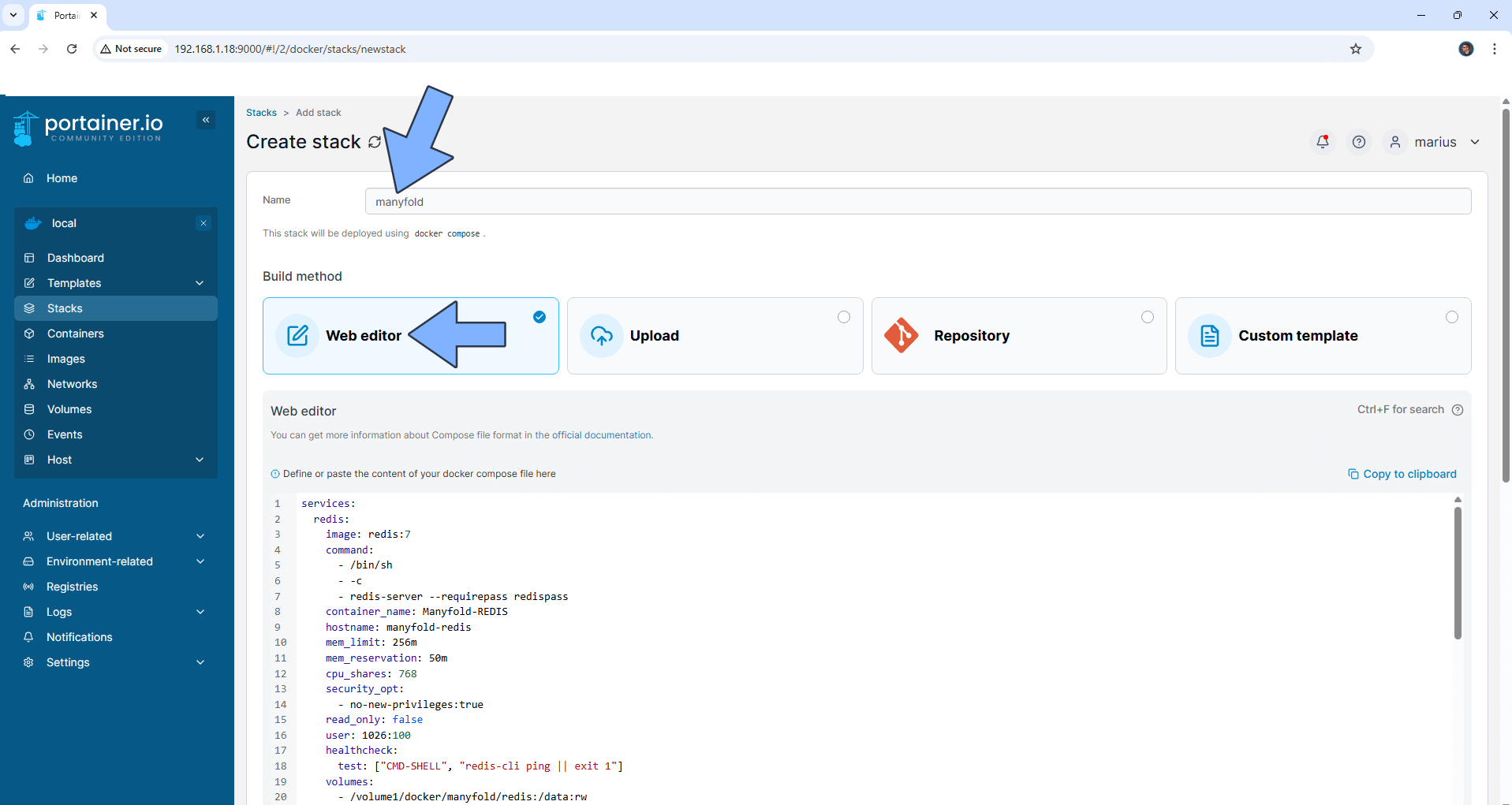
STEP 7
Scroll down on the page until you see a button named Deploy the stack. Click on it. Follow the instructions in the image below. The installation process can take up to a few minutes. It will depend on your Internet speed connection.
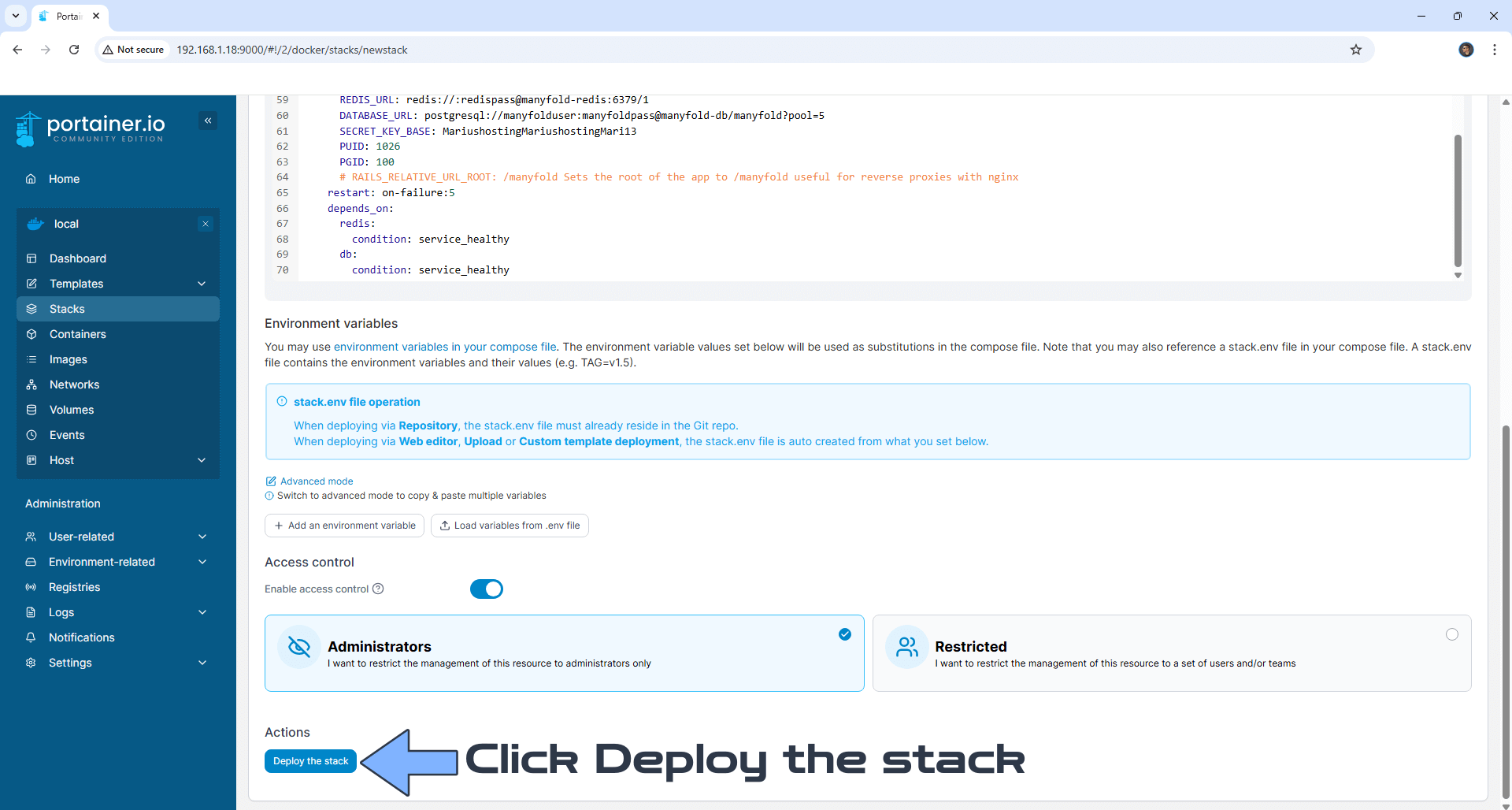
STEP 8
If everything goes right, you will see the following message at the top right of your screen: “Success Stack successfully deployed“.
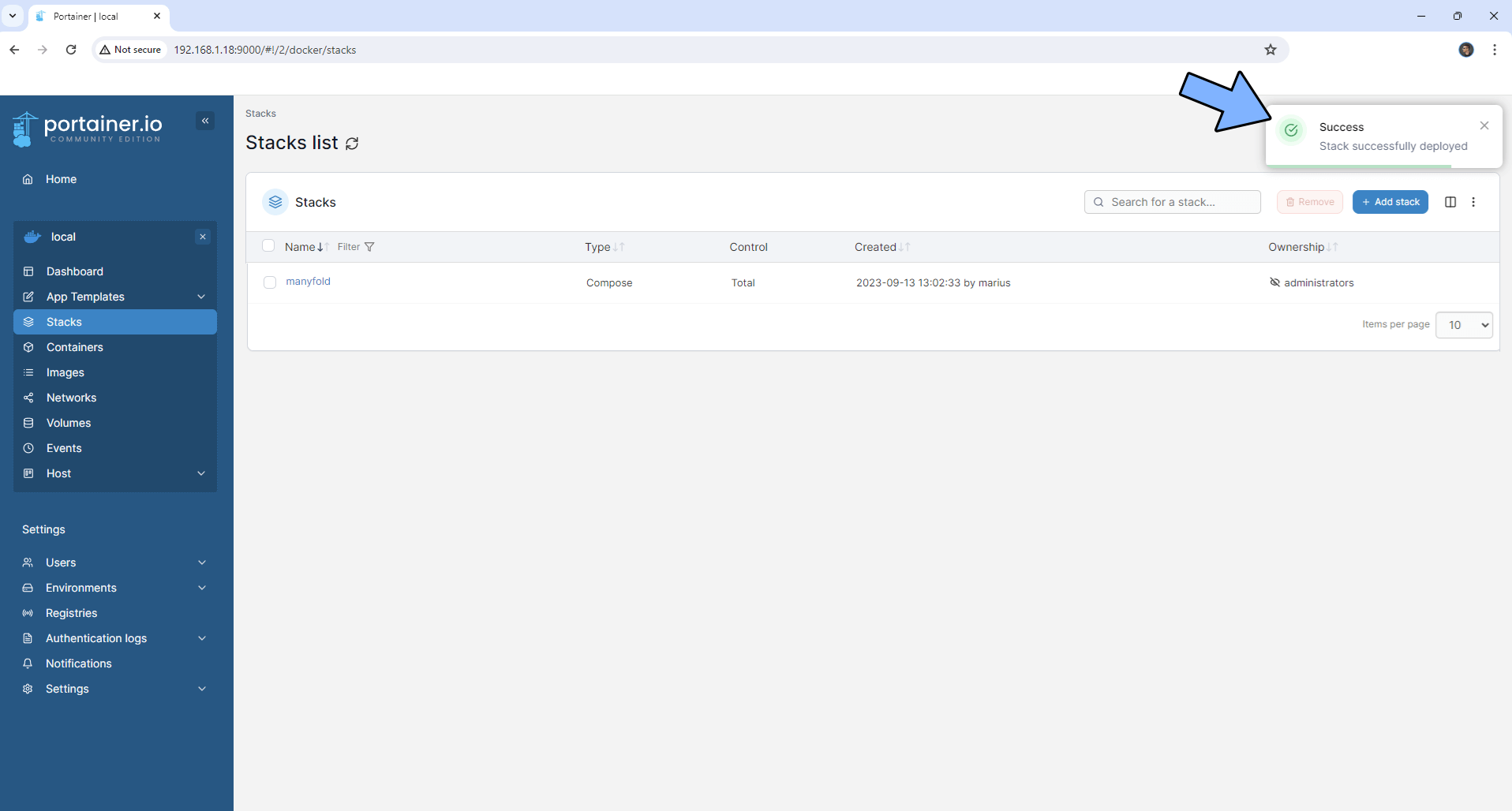
STEP 9
🟢Please Support My work by Making a Donation. Almost 99,9% of the people that install something using my guides forget to support my work, or just ignore STEP 1. I’ve been very honest about this aspect of my work since the beginning: I don’t run any ADS, I don’t require subscriptions, paid or otherwise, I don’t collect IPs, emails, and I don’t have any referral links from Amazon or other merchants. I also don’t have any POP-UPs or COOKIES. I have repeatedly been told over the years how much I have contributed to the community. It’s something I love doing and have been honest about my passion since the beginning. But I also Need The Community to Support me Back to be able to continue doing this work.
STEP 10
The installation process can take up to a few seconds/minutes. It will depend on your Internet speed connection. Now open your browser and type in http://Synology-ip-address:7214 Type in your details (Email address, Username, Password), then click Save. Follow the instructions in the image below.
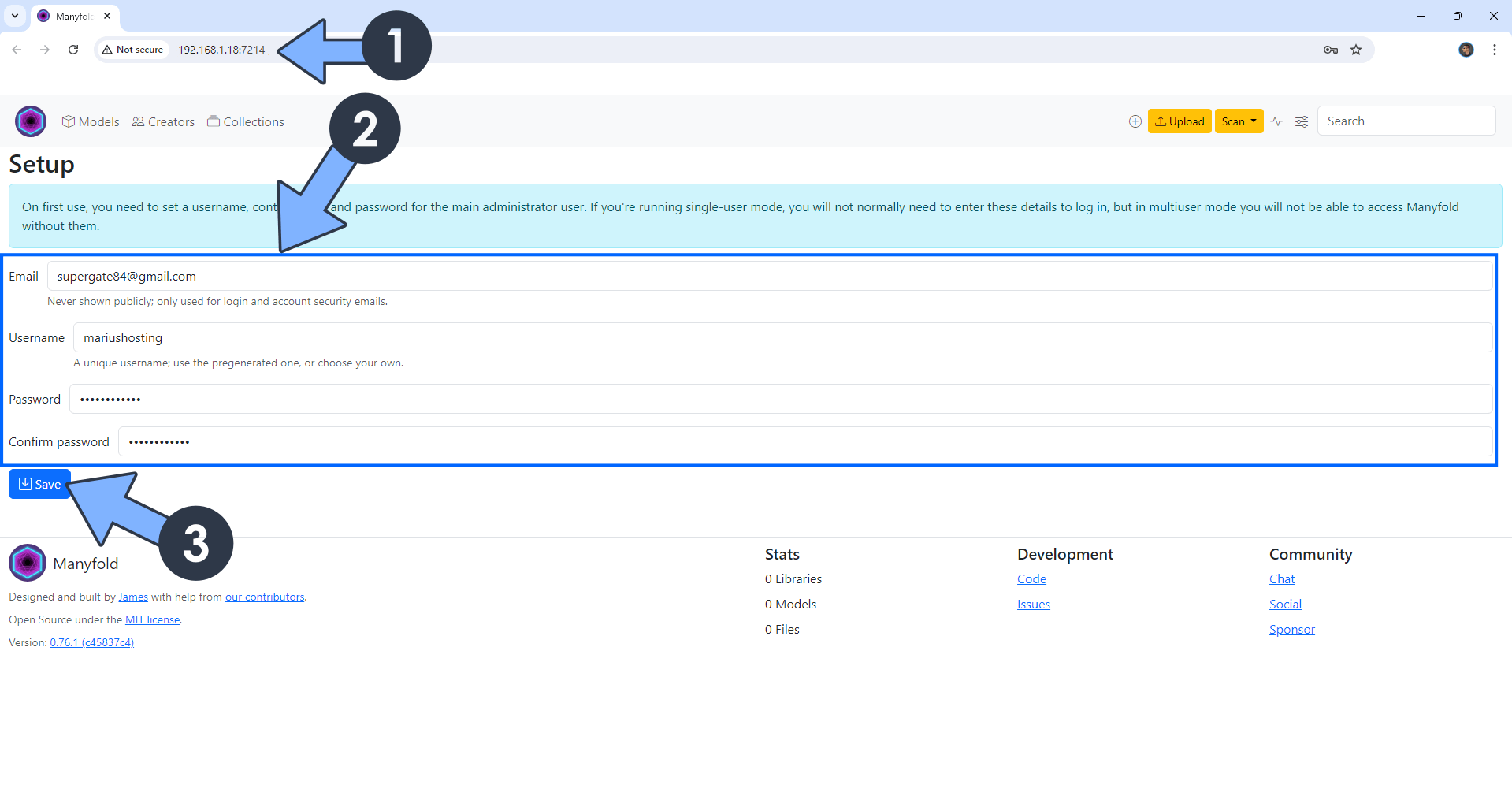
STEP 12
Type in /libraries in the Path field, then click Save. Follow the instructions in the image below.
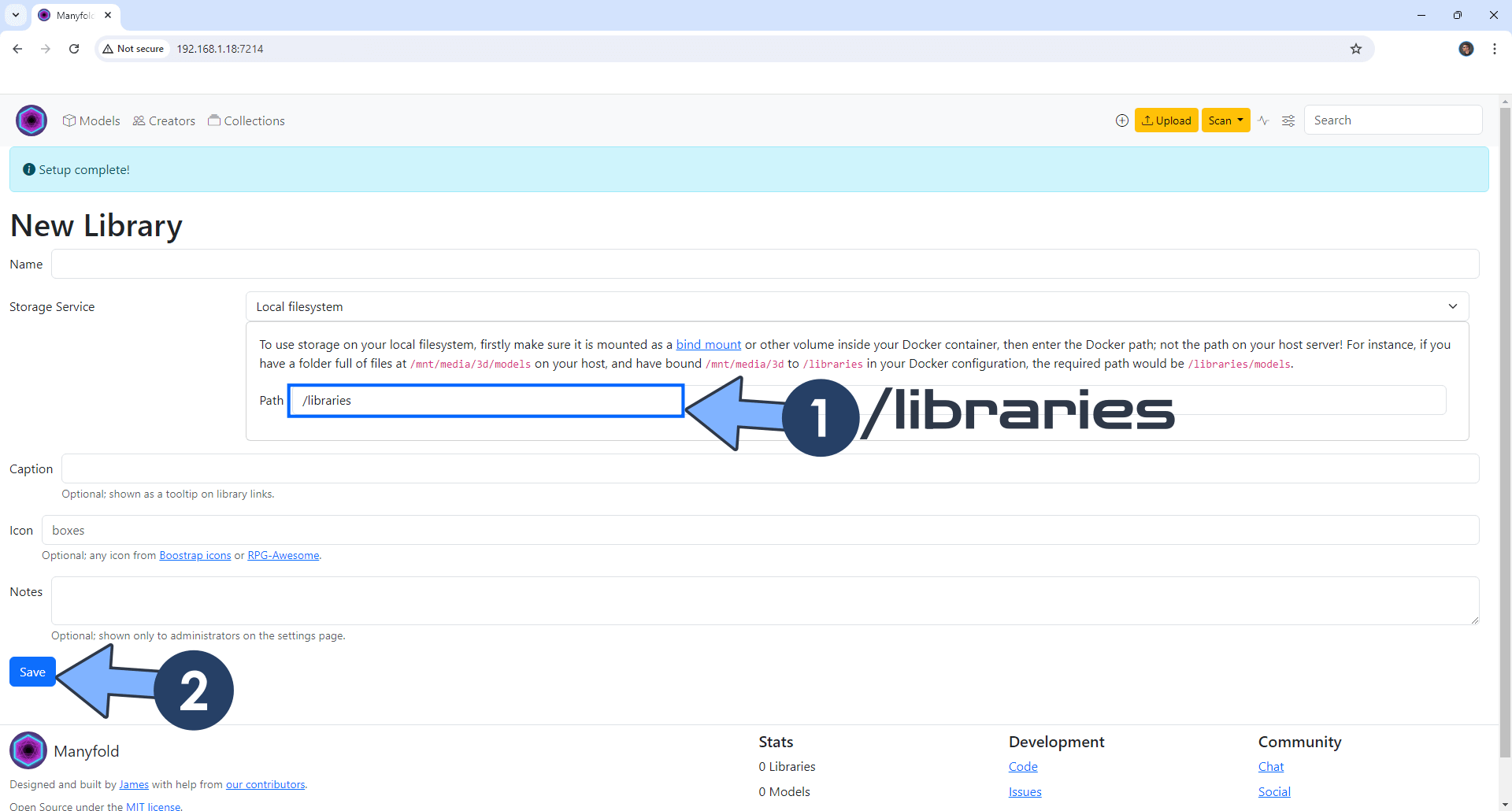
STEP 13
Your Manyfold dashboard at a glance!
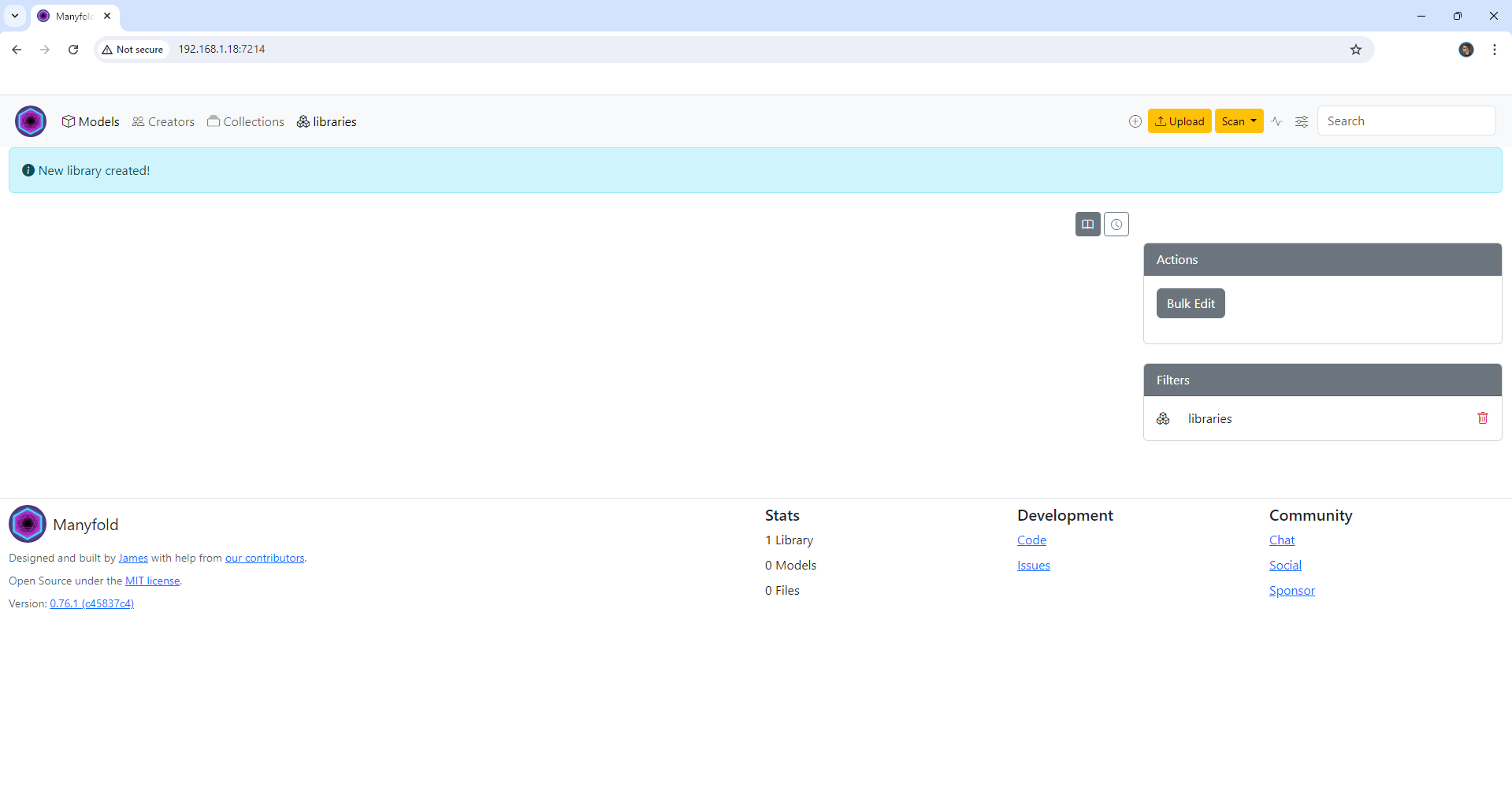
Enjoy Manyfold!
If you encounter issues by using this container, make sure to check out the Common Docker issues article.
Note: If you want to run the Manyfold container over HTTPS, check How to Run Docker Containers Over HTTPS. In order to make Manyfold work via HTTPS, it’s mandatory to activate WebSocket.
Note: Can I run Docker on my Synology NAS? See the supported models.
Note: How to Back Up Docker Containers on your Synology NAS.
Note: Find out how to update the Manyfold container with the latest image.
Note: How to Free Disk Space on Your NAS if You Run Docker.
Note: How to Schedule Start & Stop For Docker Containers.
Note: How to Activate Email Notifications.
Note: How to Add Access Control Profile on Your NAS.
Note: How to Change Docker Containers Restart Policy.
Note: How to Use Docker Containers With VPN.
Note: Convert Docker Run Into Docker Compose.
Note: How to Clean Docker.
Note: How to Clean Docker Automatically.
Note: Best Practices When Using Docker and DDNS.
Note: Some Docker Containers Need WebSocket.
Note: Find out the Best NAS Models For Docker.
Note: Activate Gmail SMTP For Docker Containers.
This post was updated on Thursday / July 10th, 2025 at 5:41 PM
